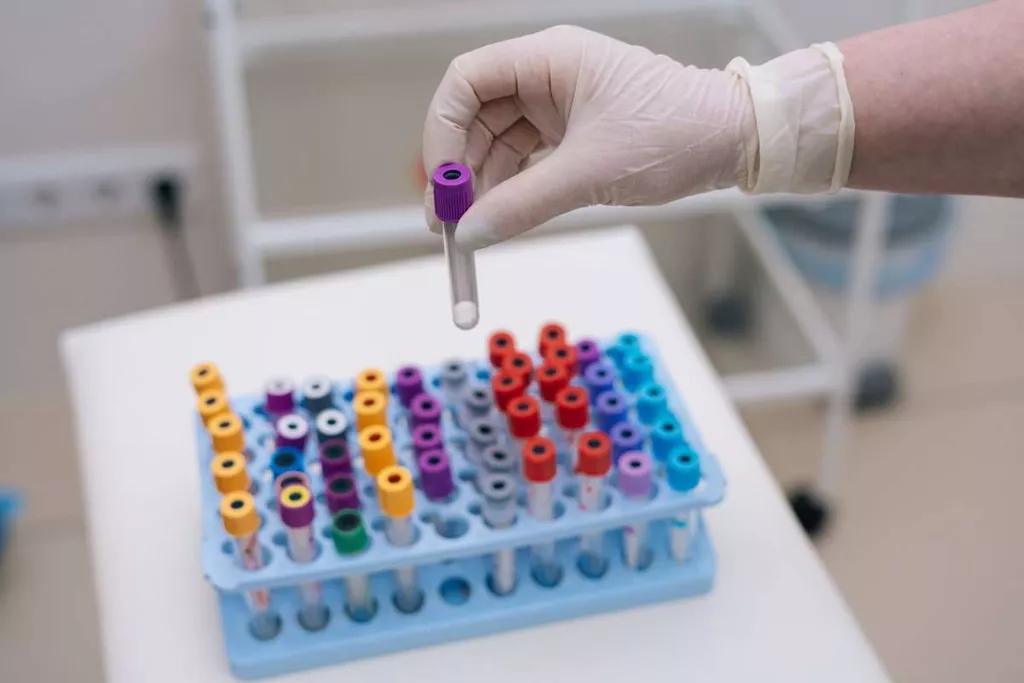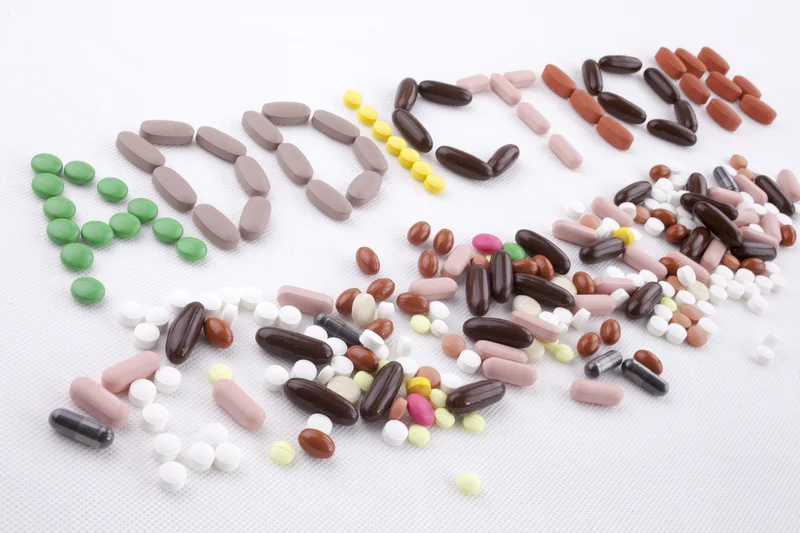Since serotonin can affect melatonin, this may affect sleep in different ways and could potentially cause sleep issues, such as insomnia, in some people. Using these can increase the risk of an irregular heart rhythm that may be serious and potentially life-threatening, although it is a relatively rare side effect. Selective serotonin reuptake inhibitors (SSRIs) “remain the standard of care” for moderate to severe PMDD, Riddle said. These medications have been found to be effective in reducing symptoms in 60 to 70% of women with PMDD, and they can be taken either continuously or intermittently before your cycle. The causes of mental health conditions are complex, and experts don’t fully understand them. These conditions may involve many psychological, social, genetic, and physical factors.
Some believe that rising estrogen levels during ovulation may trigger a histamine surge, leading to PMDD symptoms. Since Zyrtec and Pepcid AC can block histamine receptors, the theory is that they can counteract histamine levels in the body. It’s important to keep taking Zoloft as prescribed, even if it doesn’t make much difference initially. If your condition worsens in the first few weeks of treatment, talk with your doctor right away. Do not change your prescribed dosage unless your doctor recommends it.
Talk to your doctor if you have any questions or concerns. It is important to tell your doctor about all other medications you use, including vitamins and herbs. Do not stop using any medications without first talking to your doctor. Sertraline can cause an irregular heart rhythm that may be serious and potentially life-threatening, although it is a relatively rare side effect. Do not exceed the dose and duration of use of magnesium hydroxide recommended on the product label or prescribed by your doctor. Using sertraline together with alcohol may increase side effects such as dizziness, drowsiness, confusion, and difficulty concentrating.
For example, taking one medication that raises blood pressure as an unwanted effect may decrease the benefits of taking another medication to lower your blood pressure. NSAIDs (nonsteroidal anti-inflammatory drugs) are pain relievers like ibuprofen or naproxen. If you’re on a blood thinner, ask your doctor to suggest a different type of over-the-counter pain medication and dose that’s safer for you. When a medication works right, it boosts your health or helps you feel better. But a drug can bring on problems if it doesn’t mix well with something else you put into your body, like another medication, a certain food, or alcohol. Its effect on serotonin in your brain may be involved in sleep issues such as insomnia.
Drug and food interactions
It is created by eHealthMe based on reports of 208 people who take the same drugs from the FDA, and is updated regularly. Your body has enzymes, such as the cytochrome p450 (CYP) and others, that process many types of medications. It also has a way to get rid of drugs, usually though your urine. Other drugs may speed up, slow down, or even completely block these functions. When this happens, the amount of drug in your body may increase (similar to taking too much) or decrease (similar to taking too little). High-potassium foods and drinks, like bananas, salt substitutes, and orange juice.
How to use the study?
These factors may cause changes in your brain’s pathways, affecting how you process information and view the world. These changes may lead to the symptoms of mental health conditions. The symptoms of a drug interaction can vary a lot, depending on the drugs you’re taking zoloft and pepcid and how they’re interacting. Sometimes you might not even know right away that an interaction is happening. It’s important to take your medication as directed by your doctor or pharmacist.
Browse all interactions between Sertraline hydrochloride and drugs from A to Z:
EHealthMe is studying from 1,197 Pepcid rpd users for the drug’s side effects, drug interactions, effectiveness and more. Drug interactions are reported among people who take Zoloft (sertraline hydrochloride) and Pepcid (famotidine). Common drug interactions include renal failure among females and pneumonia among males. Add your drug list to My Med List to view medical information in a simple, easy-to-read, personalized format. Automatically receive FDA alerts, drug interaction warnings, plus data on food, allergy & condition interactions.
If you take other medications as well as Zoloft, it’s possible you may be more likely to experience side effects if these medications interact. The study analyzes what interactions people have when they take Pepcid rpd and Sertraline. It is created by eHealthMe based on reports the from the FDA, and is updated regularly. It works by increasing levels of a neurotransmitter (chemical messenger) in your brain called serotonin.
- Sertraline has active ingredients of sertraline hydrochloride.
- Its mechanism of action is to increase levels of serotonin in your brain.
- Combining these medications can lead to dangerous health outcomes and should be strictly avoided unless otherwise instructed by your provider.
- Zoloft works by increasing serotonin levels in your brain.
- 1,029 people who take Famotidine and Zoloft together, and have interactions are studied.
- This interaction has the potential to worsen your medical condition or alter the effectiveness of your treatment.
What Are the 3 Types of Drug Interactions?
Known side effects of antihistamines include dry mouth, dizziness, and constipation. It may take a few weeks for the medication to build up its effect, and some of your symptoms may ease before others. Neurotransmitters are natural body chemicals that pass signals between nerve cells. Serotonin passes signals in nerve pathways that manage mood, emotions, thoughts, and behavior. Zoloft works by increasing serotonin levels in your brain. I hope that I can provide help to you to resolve your issue.
Common drug interactions include headache among females and chronic kidney disease among males. Drug interactions are reported among people who take Sertraline hydrochloride (sertraline hydrochloride) and Pepcid (famotidine). Common drug interactions include injury among females and dizziness among males.
With medical big data and AI/ML algorithms, eHealthMe is running millions of data-driven phase IV clinical trials continuously. Our original studies have been referenced on 800+ peer-reviewed medical publications including The Lancet, Mayo Clinic Proceedings, and Nature. We provide the public AI-powered tools to study our phase IV findings and AI agents to run personal phase IV studies.
Some vitamins and dietary supplements interact with medicines, too. This interaction has the potential to worsen your medical condition or alter the effectiveness of your treatment. It’s important that you are monitored closely and you potentially may need to make adjustments in your treatment plan or drug dosage to maintain optimal health. This interaction could result in very serious and potentially life-threatening consequences. If you are taking this drug combination, it is very important to be under close medical supervision to minimize severe side effects and ensure your safety.
Consider spacing calcium administration for at least 2 hours before or after consuming foods high in oxalic acid or phytic acid. EHealthMe is studying from 55,760 Pepcid users for the drug’s side effects, drug interactions, effectiveness and more. With medical big data and proven AI/ML algorithms, eHealthMe provides a platform for everyone to run phase IV clinical trials. We study millions of patients and 5,000 more each day. Results of our real-world drug study have been referenced on 800+ peer-reviewed medical publications, including The Lancet, Mayo Clinic Proceedings, and Nature.
- EHealthMe is studying from 1,197 Pepcid rpd users for the drug’s side effects, drug interactions, effectiveness and more.
- They may be more likely at the start of treatment or any time your dose is changed.
- Social media users claim that heartburn medicines like Pepcid AC and allergy medicines like Zyrtec can relieve the symptoms of premenstrual dysphoric disorder (PMDD).
- Histamine is a chemical released by immune cells when the body reacts to allergens or infections.
You cannot take both of them together, as it can lead on to irregular heart rhythm. PMDD is a serious condition that requires treatment, so it’s best to work with your doctor to find the best plan for you. It’s possible that people who said antihistamines helped experienced a placebo effect or were actually misdiagnosed with PMDD and have another condition entirely, Mackay said. Histamine is a chemical released by immune cells when the body reacts to allergens or infections. In people with histamine intolerance, the body can’t break down this chemical properly.
If after I have provided a response, you need any additional information or have any clarifying questions regarding this, I’m happy to continue to help. Make sure they know all the medicines, vitamins, and supplements you’re taking. That’s extra important if you have more than one doctor who prescribes medicines for you.
For example, if two drugs can each make you sleepy, taking them together can make you more or dangerously sleepy. However, there are strategies you can try to improve your symptoms and get a better night’s sleep. If your insomnia or any other side effect is bothering you or is severe, speak with your doctor. Sleep issues are more likely to happen at the start of treatment and often improve as your body gets used to the medication. Zoloft and other SSRIs may also affect sleep due to the role of serotonin in the production of melatonin, an important sleep hormone. Zoloft can have a stimulating effect in some people that could lead to insomnia.
For example, supplements like calcium and iron can prevent absorption of thyroid meds. Individual drug-drug interaction detail pages contain references specific to that interaction. You can click on the reference number within brackets ” to see what reference was utilized. The theorized or clinically determined reason (i.e., mechanism) why the drug-drug interaction occurs. Avoid coadministration of sertraline and this drug as this may result in an increased risk of QT prolongation and/or ventricular arrhythmias.

















